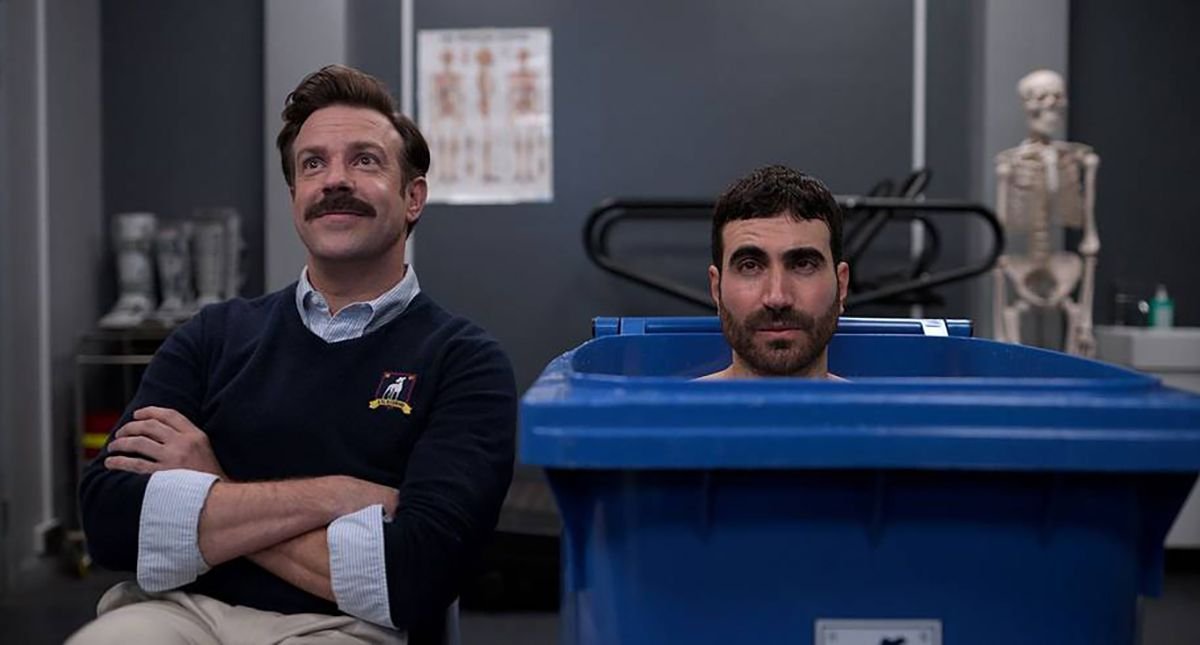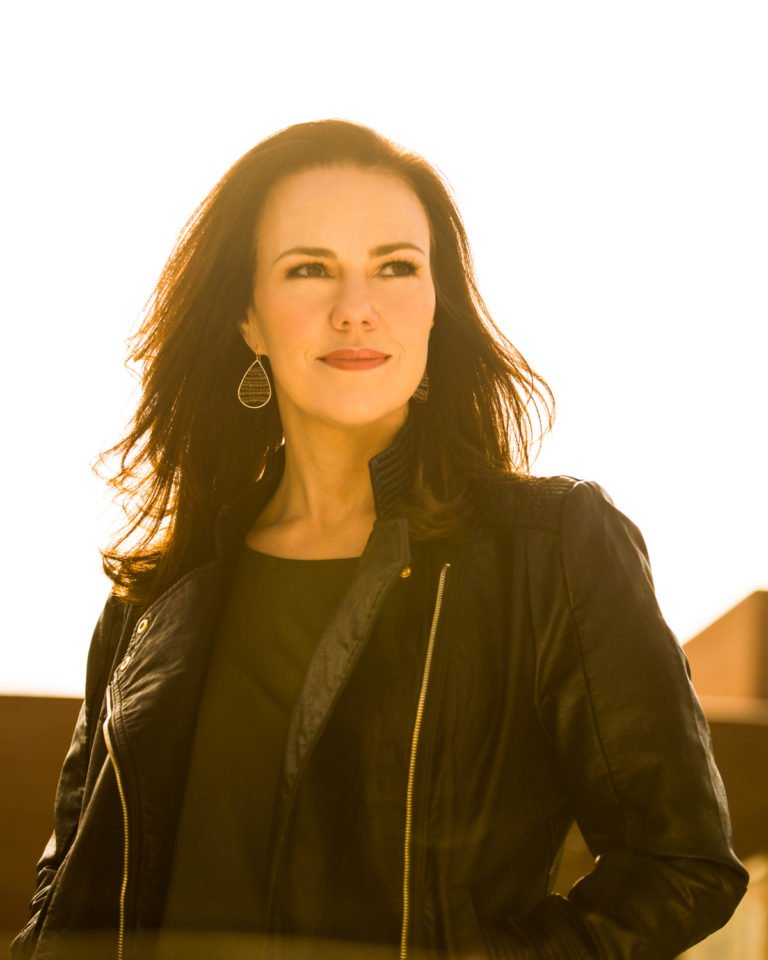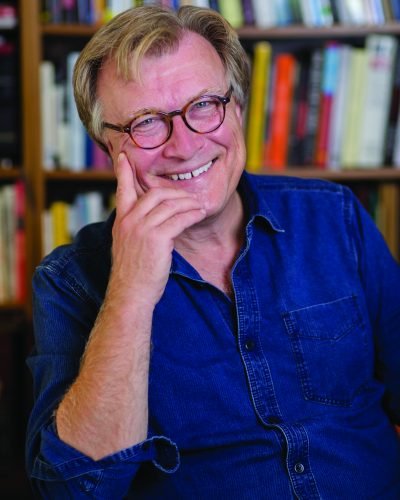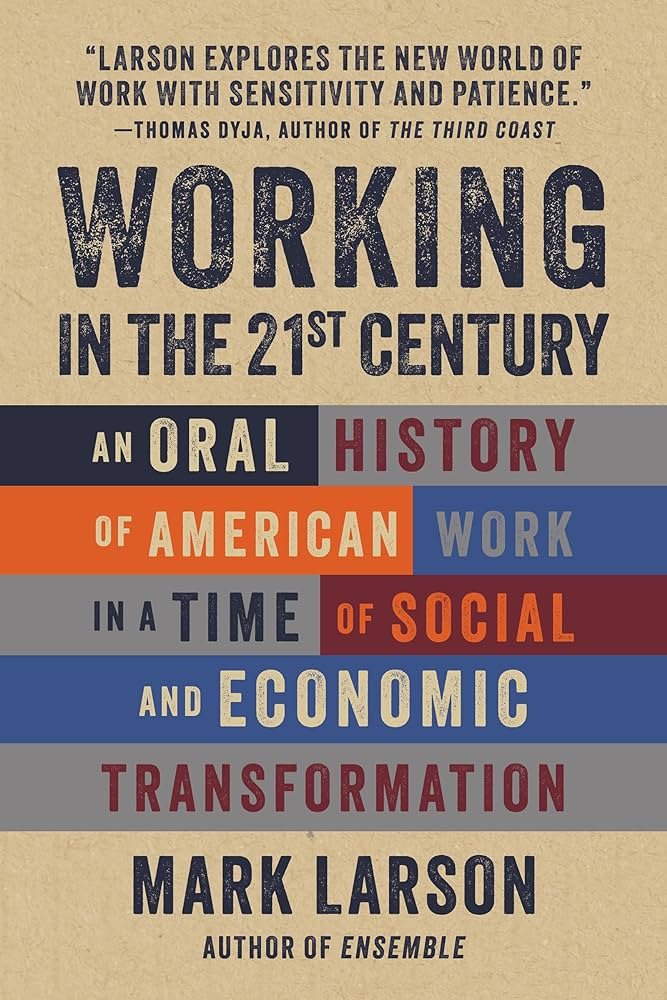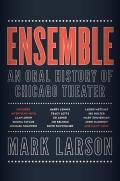Arts Advocates Are All Around Us
Just by doing what we do, we can advocate for the arts. Brett Goldstein, Georgia Stitt and Mark Larson provides three perfect examples.
Arts Advocacy can take a lot of forms. Getting involved with national and regional arts advocacy groups and actions is one way, but not the only one. Today I shine on a light on three artists – Brett Goldstein, Georgia Stitt and Mark Larson – who are also terrific arts advocates.
Brett Goldstein is a brilliantly insightful writer, producer, actor and storyteller, and out of all the work he's done – Ted Lasso, of course, but also SuperBob, Soul Mates and Shrinking, among others – my favorite is his weekly podcast Films To Be Buried With.
The premise is simple. Brett brings on a guest, tells them they’ve died and that in heaven everyone wants to know about your life through the films that meant the most to you.
Simple and fun, right? Sure, but Films To Be Buried With doesn’t settle for simple and fun.
The first clue is the title: guests will be discussing death. How often they think about death, and why, and what comes after death (if anything), and even how (in the world of the podcast) they've just died. It’s handled with a light and deft touch, but it’s a deep and revealing subject.
And a great set-up for talking about life, which is where this podcast's heart lies. Brett poses twelve questions (more if you're a Patreon supporter) about the films that reflect his guests' strongest feelings and most memorable experiences. How the questions are posed is everything. “What’s the scariest film you ever saw?" would require an impossibly objective and only-so-interesting answer. But “What’s the film that scared you the most?” is an invitation to talk about fear itself. Similarly, “What’s the film that made you cry the most?" and “What’s the film that made you laugh the most?” get guests talking (and listeners thinking) about what makes us sad and happy, and so on.
“What’s the film that no one else likes but you love unconditionally?" gets us talking about identify and preference. “What’s the film you used to love, but now you look back and don’t like it anymore?" gets us talking about personal growth and evolution. “What’s the film that you relate to the most?” invites us to talk about who we are. “What’s the film that changed your outlook on life?” lets us explore who we want to be.
(For the record, my answers to those questions are: An American Werewolf in London, the Albert Finney Scrooge, Monty Python and the Holy Grail, Burn After Reading, Neil Diamond’s The Jazz Singer (oh dear Lord), a tie between Breaking Away and That Thing You Do, and About Time. See them all, please. Except The Jazz Singer. I love Neil Diamond, which is why I implore you to never, ever see The Jazz Singer.)
Use Brett’s format and substitute any art form you like – theater, books, TV, songs, paintings – and you'll find yourself cherishing how much art describes and defines you, and reflects your feelings about the world around you. You'll be powerfully aware of how absolutely essential art is.
Maybe that’s a good way to convince people about how vital the arts are to our identities: let Brett Goldstein at ‘em. When the power-hungry and the frightened seek to diminish interest in and support for the arts, and where the quality of art is perversely measured by box office, streams, likes and clicks, Brett Goldstein invites us to remember why people make art and why everyone responds to it. He encourages us to understand ourselves and each other through the art that impacts us. The result is a show that makes art and artists feel meaningful to its listeners.
Brett Goldstein is one heck of an arts advocate.
(See below for links to "Films To Be Buried With" and a list of Brett’s upcoming stand-up shows.)
Georgia Stitt may indeed be a gifted composer/lyricist, music director, pianist and producer, but I think the technical term for her is “knockout human being.”
Georgia could easily fill all her days and many nights creating and performing work for stage, screen and concerts, and had she opted to do only that, I’d feel lucky and grateful. The world needs all the beauty it can get, and Georgia’s work is certainly beautiful.
But Georgia’s social conscience runs deep, and when it calls, she answers. Already serving on the Council of The Dramatists Guild of America and on the Leadership Council for the Songwriters & Composers Wing at The Recording Academy, Georgia looked around her to see who else was doing the kind of work she was doing – and more to the point who was not – and that inspired her to create Maestra, an activist organization that provides support, visibility and community to the women and nonbinary people who make the music in the musical theater industry.
Maestra produces educational seminars, mentorship programs and technical skills workshops. They host in-person and online networking events. They create partnerships to help deserving people whose opportunities historically have been limited in wildly unfair fashion to somewhere between “scant” and “a little less scant than it used to be.”
You can see Maestra in action for yourself on Monday March 25 when Maestra hosts Amplify 2024, its fourth annual spring concert and fundraising event. Hosted by Bonnie Milligan and J. Harrison Ghee, the night will include stories, conversations and musical performances from an impressive array of Broadway stars, composers, music directors and more.
While I would shower Georgia with accolade after accolade for all she’s done, I suspect she might say that all she did was show up, look around and do the work that needed to be done.
Is that not the very essence of an arts advocate?
(Scroll down for a link to get in-person or online tickets to Amplify 2024.)
I don’t think I’ve ever seen Mark Larson have a conversation that didn’t change the person’s life.
Mark has excelled at so many things: playwright, theater founder, apprentice to mentors Burr Tillstrom and Studs Terkel, award-winning teacher, education director for museums and zoos, respected author, and most prominently highly acclaimed oral historian.
Above all, Mark is a Listener.
That should be a real job, and a well-paying one at that. Far too few of us would qualify for the gig. As Kelly Leonard's Getting To Yes And podcast repeatedly observes, most of us are done listening to people and formulating our responses way long they're done talking (or, as Paul Simon wrote, "hearing without listening").
Not Mark. If you're fortunate to talk with him, you’ll likely find yourself doing most of the talking. It’s not that Mark has nothing to say; he’d just rather hear what you have to say. If you ever fear you’re not an interesting person, go have coffee with Mark to prove yourself wrong. His capacity to put people at ease with themselves, their choices and their lives is beyond compare.
For proof, look no further than Mark's newest oral history, Working in the 21st Century, a sequel-in-spirit to Studs’ landmark Working, which he recently discussed at The Museum of Broadway with legendary Broadway composer Stephen Schwartz, who not only gave the world the scores for Wicked, Pippin and Godspell but was also the lead composer for the musical adaptation of Working.
Mark’s engrossing exploration of what it means to work in a post-pandemic world always puts his interview subjects front and center. His point of view becomes clear in the way the book is constructed. I liken Mark's style to what astrophysicists called Dark Matter – we can’t see it or explain it, but we know it exists and that the stars can’t form or shine without it. Mark is the Dark Matter to the shining lights that are his interview subjects, and wow, do they shine.
When a few sentences ago I said you could look no further than Working in the 21st Century, I lied. Look a little further to Ensemble, Mark's superb oral history of Chicago Theater. It’s not just the book’s thorough grasp of theater history, its appreciation of the improvisation and ensemble based ethics that have shaped Chicago theater or its magnificent construction, it’s the stellar assemblage of theater makers and the detailed and intimate nature of the stories they share, all because Mark is that good of a Listener.
What that does is make a reader want to do is, for the first time or the thousandth, see a show. Support the arts. Support the artists. Support the city, the state and the country in which that art is made and those artists work.
I would call that arts advocacy of the highest order.
Brett Goldstein's podcast Films To Be Buried With is available via Apple, Spotify, Amazon, Audible and virtually any other place you get your podcasts. His Patreon page gives people access to additional content and videos. For the few tickets that remain for his stand-up tour The Second Best Night of Your Life, click here.
In-person and online tickets to Maestra's Amplify 2024 benefit are available here.
Here are links to order Mark’s books Working in the 21st Century and Ensemble: An Oral History of Chicago Theater.
If you're not currently a subscriber to Arts Advocacy in Action but would like to make sure you don't miss future editions, click here.

